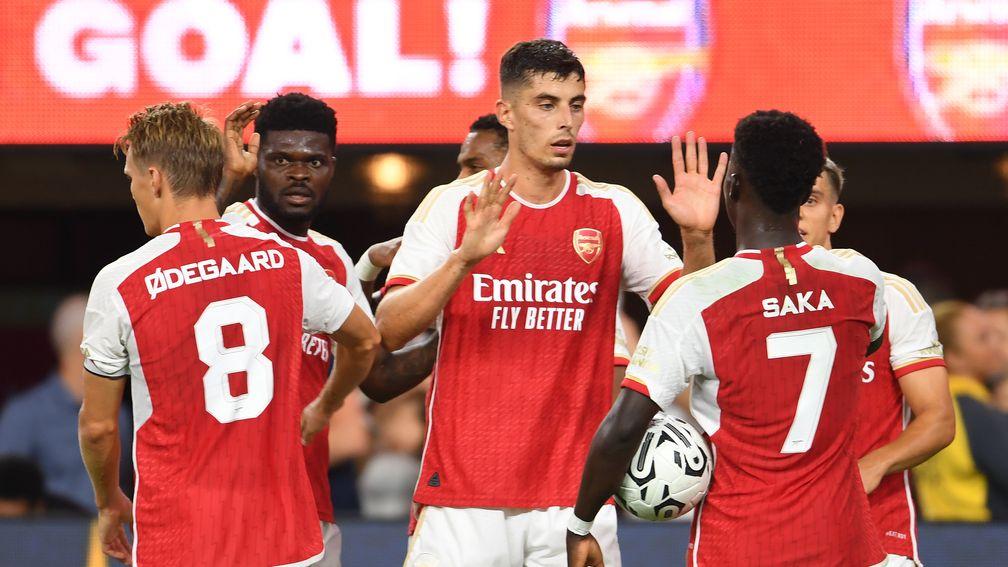Why ending the 3pm blackout could hit fans in the pocket
This week it was revealed that the number of televised Premier League games per season will jump from 200 to 270 by 2025.

When it comes to footballing visionaries, David Mitchell isn’t someone I’d have at the top of the list.
However, his 2008 sketch from That Mitchell and Webb Look featuring an increasingly manic presenter listing upcoming live games looks less and less like parody by the year.
This week it was revealed that the number of televised Premier League games per season will jump from 200 to 270 by 2025.
Part of the increase fixes an odd quirk of the 3pm blackout. Broadcasters can move games out of the 3pm slot to show them live, but there’s no option to watch games that are moved for other reasons.
From 2025 any fixture played outside the 2:45pm to 5:15pm Saturday window will be live. That includes matches moved for cup clashes and games pushed to Sunday due to European commitments.
However, it’s rumoured that even bigger changes are coming down the line. The 3pm blackout could be gone entirely by 2029, in a move to screen every Premier League game.
Fittingly for this time of year, the league’s resident bogeymen are getting the blame. The cabal of American owners is said to be the driving force, as they eye the biggest possible TV rights bounty.
That does make sense given that viewers in the US have long had access to every Premier League game. On top of that, any owner – whether they see themselves as an investor or a benefactor – can get behind the idea of more money for their club.
The blackout was originally there to protect attendances in the EFL, but those divisions have long been competing with Champions League games in midweek with little impact at the turnstiles.
However, top-flight fans, and the Premier League itself, could suffer.
We only have to look back to the 2020-21 season to see how the league and broadcasters would approach those live games.
The league did dole out extra matches free as part of the restart in 2020. However, by October they rolled out a controversial plan to charge fans £14.95 per match to see games outside their broadcast deals.
Premier League owners eyeing a payday are unlikely to be more generous. That bill will ultimately land with fans, adding to the already spiralling cost of sports subscriptions.
While the fear has always been that EFL attendances will drop if Premier League games are on TV at the same time, there’s a risk on the other side of that. With around 400,000 people attending EFL games each weekend on average, a big chunk of the potential TV viewership could be elsewhere. The safest option is to just move out of the 3pm slot altogether.
In 2020 there was also a reluctance for broadcasters to compete with themselves or each other for viewers by showing matches at the same time. That will be even less appealing once they’ve been made to fork out a bumper fee for all these extra games.
Expect something closer to the current Spanish model, which splits games over ten slots from Friday to Monday. We saw largely the same approach during the pandemic.
That would firmly push Mitchell’s “constant, dizzying, 24-hour, year-long, football” line beyond parody.
It also guarantees a huge spotlight for the dour game of the weekend which gets the briefest highlights package at the tail-end of Match of the Day.
The blackout does feel like a relic of the past, and it’s hard to see who exactly benefits from it. However, push things too far the other way and the future might not be that much brighter.
Sign up to emails from Racing Post Sport and get all the latest news and tips
Today's top sports betting stories
Follow us on Twitter @racingpostsport
Published on inOpinion
Last updated
- Mark Langdon: Premier League rollercoaster leaves me sick
- Patrick Madden: Joe Schmidt's revolution should ensure the Lions won't have it all their own way Down Under
- Simon Giles: How Chelsea have kept moving in the right direction
- Joe Casey: How the final league Merseyside derby at Goodison Park could shape up
- James Milton: Rooney and Lampard struggling to find golden touch as managers
- Mark Langdon: Premier League rollercoaster leaves me sick
- Patrick Madden: Joe Schmidt's revolution should ensure the Lions won't have it all their own way Down Under
- Simon Giles: How Chelsea have kept moving in the right direction
- Joe Casey: How the final league Merseyside derby at Goodison Park could shape up
- James Milton: Rooney and Lampard struggling to find golden touch as managers